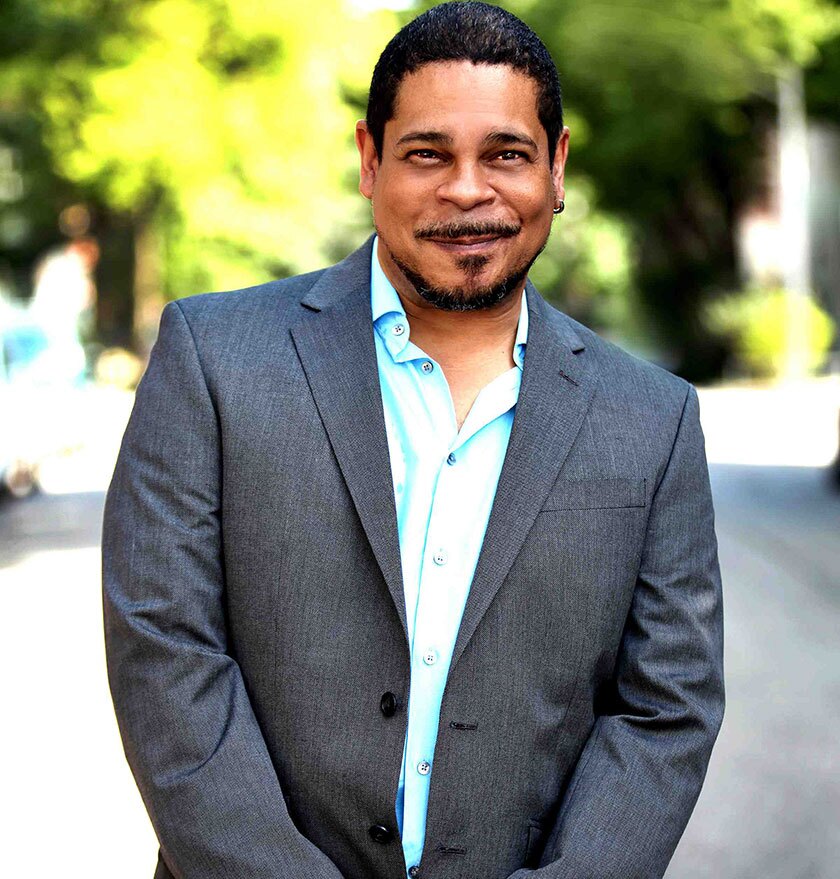For playwright Tony Meneses, the inspiration for The Old Globe's new production of "El Borracho" came from many sources: his family, grief and a drive for representation. But first, he knew he had to write it because he was afraid of it.
"I was in school at Juilliard, and my teacher, Marsha Norman — who's a renowned Pulitzer Prize-winning playwright — she has this philosophy that at one point in a writer's career, you have to write the play that scares you. And that phrase alone immediately conjured this play for me," Meneses said. "It's a very personal story. It's a play about my father, and when he passed away. It's something that when it happened, as an artist, I sort of knew one day I would have to contend with it in that way."
Eventually, Meneses confronted that fear, and an earlier draft of the play was part of the Globe's 2020 Powers New Voices Festival, a renowned new play workshop that features works from new playwrights across the country. It's back at the Globe now through March 20 in a full production.

The specific made universal
"I was terrified of sharing the story and terrified of sharing the play and exposing my family and myself so vulnerably. But now that we've already been open and we've gotten to see the show in front of audiences, it's been really rewarding. … a lot of people have been able to access and connect it to themselves and their families," Meneses said.
The play features a cast of just three characters, zoomed in on a single family: Raul, an alcoholic father on his deathbed; Alma, his ex-wife who begrudgingly lets him move in so she can take care of him in his final weeks; and David, their adult son — who Meneses said is his "proxy." The story is rooted in the experience of and the relationship between the two parents.

Director Edward Torres co-founded the Chicago-based Teatro Vista more than 30 years ago, a company working to change the lack of Latinx stories in the American theater. He has worked on several plays with the Globe, beginning in 2014 with Quiara Alegría Hudes' "Water by the Spoonful."
RELATED: The Old Globe's Powers New Voices Festival Champions Fresh Perspective
For Torres, in a script like "El Borracho" — one that's character-driven and intensely personal — he was also drawn to its universality.
"One of the really lovely things about this story, and yes, it's a personal story for Tony, and that is already, for me, fascinating. But I think also I was able to draw my own personal experiences for my own parents as well," Torres said.
Breaking the mold of alcoholism stories
Torres said that the characters defy stereotypes — a juxtaposition with the play's title that draws on the "El Borracho" card in the popular Mexican Lotería card game which depicts a drunkard.
"Raul is not your mean drunkard by any stretch of the imagination. He's actually quite charming, quite wonderful," Torres said. The son loves his parents genuinely, and Alma is a loving but strict woman — something he recognized in all the matriarchs in his life. "I was like, wow, this is not too far from my own family."
"I think the idea of addiction and loss and a family that breaks apart — there is something very human about that," Torres said. "It's not just the idea that, OK, well this is a Latinx family or Mexican family. This could be somebody who could be from Poland or somebody from an African American family."
Meneses said it was important to him to add his own experience to the canon of stories about alcoholism, which sometimes skew violent.
"When this character in real life drank, he was actually very gregarious and you couldn't help but fall in love with him," Meneses said. "I just have never seen that story."

A new Latinx theater canon
When Meneses wrote this script, he had actor Jesse Perez, who plays Raul, in mind for the role.
"For me as a Mexican immigrant playwright, a Latino playwright, I didn't grow up with a lot of examples of the kind of work that I'm writing. And I feel like what Jesse is doing, it's Willy Loman. It's what white actors get to do with Willy Loman," Meneses said. "There's not many options for talented Latino actors. I feel like if I did anything, I gave Jessie this opportunity to tear it up in this play, and he absolutely does," Meneses said.
Meneses said that he's drawn to the idea of writing plays like Chekhov, in a way that carries his own genuine voice and lived experience as well as exploring the full range of humanity: joy, fear, pain, absurdity, sorrow, etc. He often feels like what's expected of Latinx writers is magical realism, but for the time being he wants to write reality.
"In general, as an artist, I really try to avoid obviously stereotypes, but the things that get reinforced in terms of who we're allowed to be, how we're allowed to be perceived. So I hope the radical act — even these grounded human stories that I'm interested in — is that we get to just see Latinos as human beings. And I just feel like that's not really seen very often," Meneses said. "I just hope we continue to see more artists elbow their way into the narrative here, into the American theater narrative, and sort of take up the place that's rightfully and deservingly ours."
"El Borracho" runs through Mar. 20, 2022.







